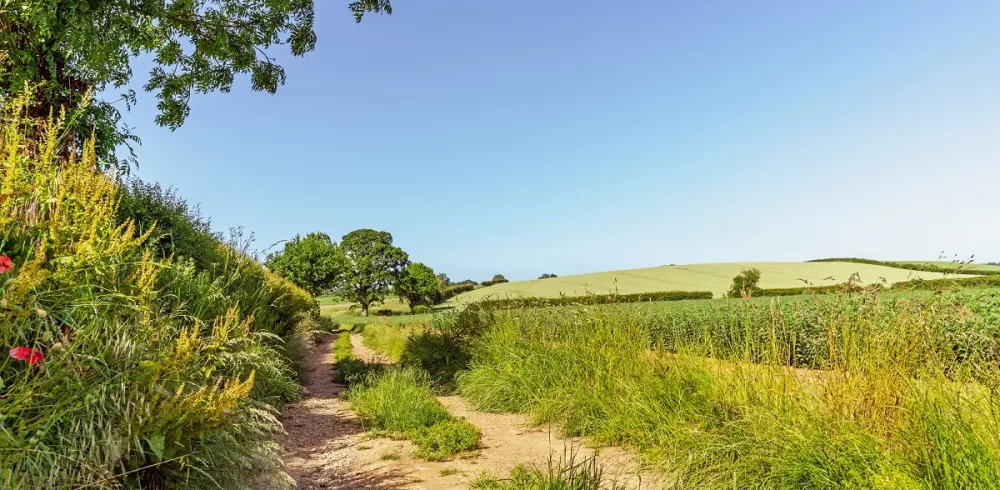There is no denying that the world is in the midst of a crisis. But we probably aren’t talking about the crisis you think. Over the past decade, the human population has grown by 8.7%. That’s a lot more people, and a lot of new mouths to feed. This has created a much higher demand for food and food products, which in turn has meant more farming to provide it. But when the green spaces and wildlife habitats of the world are also at risk, how do we decide which need is more important? Or is there a way we can produce enough food to feed our growing population while also safeguarding wildlife and natural habitats? It’s a fine balance, and one we’re still trying to find.
Biodiversity In The Global Food System
There are many things that contribute to the loss of biodiversity in the UK and worldwide, but the global food system is one of the biggest. At present, the agriculture industry alone threatens 24,000 of the 28,000 species currently at risk of extinction. This is due, in part, to the fact that global crop production has almost tripled, causing a 30% increase in demand for farmland producing crops for lower and lower cost. While this helps improve the state of global food security, the cost has been a massive hit to biodiversity.
In fact, intensive farming efforts and loss of natural habitat due to farmland expansion are now considered the main drivers of biodiversity loss. There are a number of reasons for this, including the increased use of agrochemicals, mechanical activities and land clearance to the destruction and fragmentation of natural habitats. And this isn’t just one farm or even one country – it’s a global issue. Not to mention that the global food system is also a major driver of climate change, responsible for producing around 30% of global greenhouse gases, 80% of deforestation and 70% of freshwater use.
The biodiversity loss is already high, but it will only climb higher if action isn’t taken now to safeguard land for nature. This means we need to change the ways we produce our food and approach agriculture. It’s possible to stop the devastation in its tracks and even start reversing it, but it requires a significant investment in sustainable agricultural land management.
Is Sustainable Agricultural Land Management The Answer?
So, if food production and farming practices have such a big impact on biodiversity, what is the solution? The perfect answer is effective land management. If land owners can plan and manage their rural land with biodiversity and preservation in mind, so that it’s not used in a way that will negatively impact the environment. Not to mention that taking an integrated approach to the management of land, water, and other natural resources, you can ensure healthier land and long-term biodiversity. If every land owner made the choice to adopt a sustainable land management strategy, they could preserve and enhance the habitats of thousands of animals, ecosystems and habitats, without compromising farming or food production. It’s a win-win.
At present, there are two main approaches to agricultural management whose primary aim is to increase the availability of resources to wildlife. They are:
Wildlife-Friendly Farming: This is when agricultural practices are adjusted and tailored to enhance the populations of local wildlife but creating a more integrated, harmonious system.
Land Sparing: This approach involves managing portions of your agricultural land intensively to increase yield, which reduces the pressure to convert neighbouring natural habitats to cropland. This not only prevents the destruction of habitats, but it actually creates new ones, since the remaining land can be left to return to its semi-natural state, boosting biodiversity in a very simple way.
Agricultural land management isn’t a simple thing, and there are a lot of different aspects to consider when planning out your approach. From the use of fertiliser and water to the removal of trees and hedges, every action you take can have a significant impact on the natural world around you, and so should be carefully planned. This is where having an ecological expert on board can be incredibly helpful.
Can Ecological Experts Help?
Yes, they absolutely can! Ecological experts like us can help support farms and estates in making ecologically sound choices. From conducting appraisals to creating biodiversity management plans for farmland, an experienced ecologist will be able to provide you with the knowledge and tools you need to preserve the wildlife on your land. We will be able to identify the wildlife living there, give you information about how to protect, mitigate or enhance their presence, and ensure you’re compliant with all relevant wildlife laws and policies. And using tools like Defra’s ‘Biodiversity Net Gain’ metric, we can calculate the biodiversity net gains on your land, as well as highlighting areas that you could gain biodiversity credits from the government.
Biodiversity appraisals are an important part of the process and means you can understand and make plans for protecting local wildlife on your lands within your own farming and land management practices. Our appraisals include:
- Surveying the land (either on foot or by satellite photos) to evaluate and identify key signs of wildlife and their habitats, such as rivers, woodland, hedgerows and important grasslands.
- Compare that information to the list of important, protected or threatened wildlife species to give you a map of biodiversity needs on your land.
- Calculating the biodiversity net gains, usually by adjusting your land management practices in those key habitats we pinpointed.
- Discuss sustainable alternatives for current practices, as well as the advantages of land banking areas for biodiversity credits.
____
If you have any questions, or would like to discuss using your land in a more ecologically sustainable way, please get in touch with the Engain team today by calling 01225 459564 or sending an email to enquiries@engain.com.
Manufacturing & Engineering Magazine | The Home of Manufacturing Industry News














